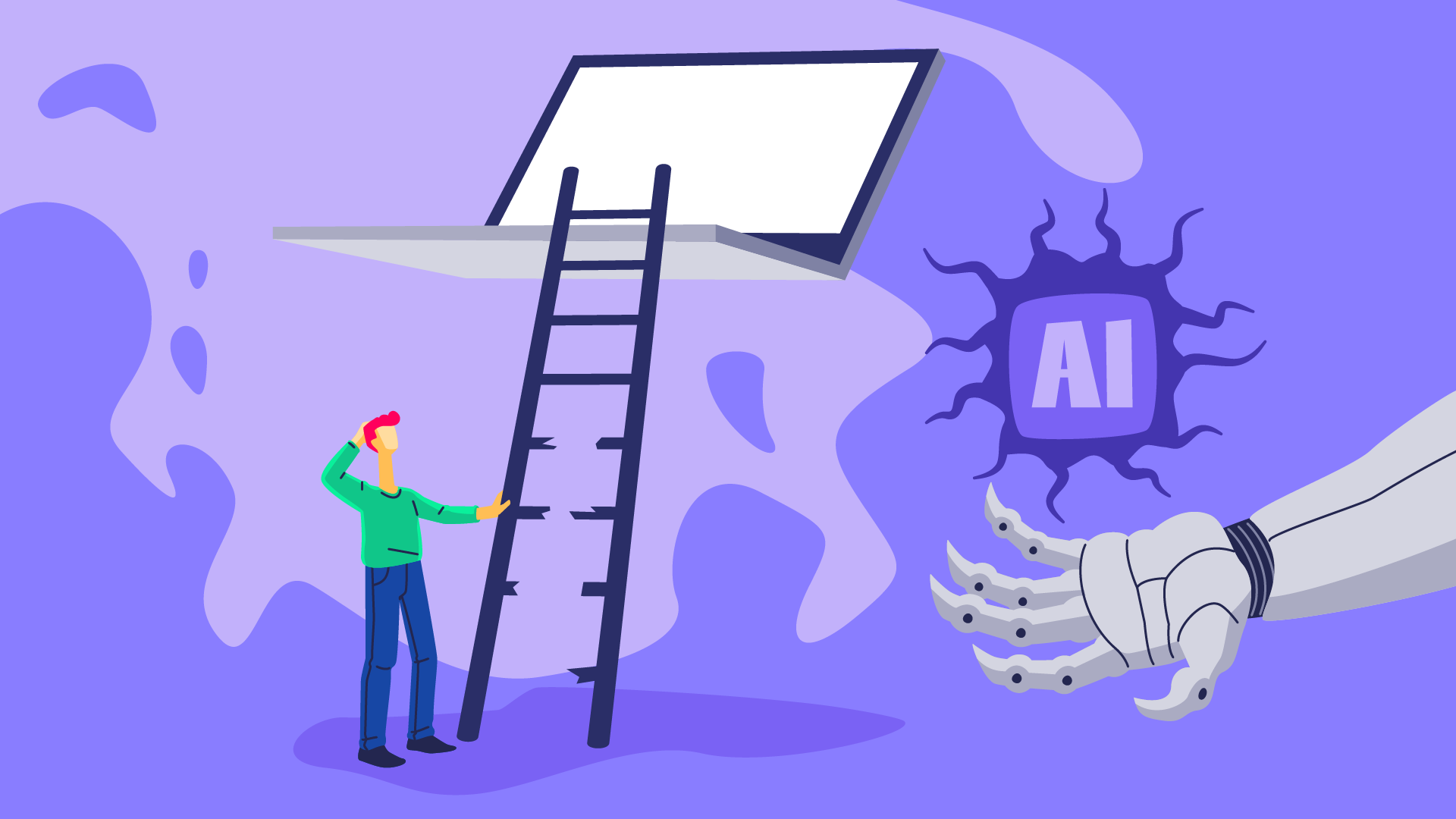To be precise, Big Tech companies reduced hiring of new graduates by 25% in 2024 compared to the previous year. This is built on an already dramatic 50% drop since 2019. Today, junior developers make up only 7% of tech hires, compared to 15% before the pandemic.
The Disappearance of the Junior Level in Software Development: When AI Takes Over

To be precise, Big Tech companies reduced hiring of new graduates by 25% in 2024 compared to the previous year. This is built on an already dramatic 50% drop since 2019. Today, junior developers make up only 7% of tech hires, compared to 15% before the pandemic.
When the Machine Is Cheaper Than the Human
Nowadays, an increasing number of AI tools designed to support developers – like Cursor or Copilot – are available, offering substantial help in development processes for around $20 per month. For many companies, it seems logical to first increase efficiency with these solutions before considering hiring a new junior developer.
And honestly? I understand them.
The numbers speak for themselves: GitHub Copilot already serves over 1.3 million paying subscribers, and more developers are using AI assistance in their work every day. Microsoft’s study of 4,867 developers shows that these tools increase productivity by 26%, while GitHub and Accenture report developers complete tasks 55% faster.
An AI tool:
- is always available and never takes vacation or sick leave
- doesn’t require long onboarding
- can quickly learn from previous experience
Thus, it can effectively support the development process.
A junior developer, on the other hand, is a valuable, long-term investment who grows through the learning process, acquires new skills, and gradually brings more value to the team. This growth requires patience and support – a path companies are increasingly choosing less often.
The Decision Has Been Made – Companies Are Speaking
You might think this is still a future concern. But it’s not. Marc Benioff, CEO of Salesforce, declared in February 2025:
We are NOT hiring software engineers in 2025.
The reason?
We have seen such a remarkable productivity increase thanks to AI agents assisting our engineers that it resulted in a 30% improvement.
Microsoft is on a similar path: over 40% of its 2025 layoffs targeted software engineers, while CEO Satya Nadella announced that 30% of the company’s code is now written by AI.
At Shopify, CEO Tobi Lütke announced internally that they are introducing an “AI-first” hiring policy, requiring applicants to prove that AI cannot perform the work before new hires are approved.
This phenomenon has also appeared in Hungary. In early August, Docler–Byborg’s Budapest office began a “200-person, group-wide layoff”, explaining that “the company group will increasingly prioritize the automation of workflows and the application of AI solutions.” The company described this as an
inevitable reorganization process”, noting that “the use of AI in certain areas and departments allows for operating without human resources.
But What About Those Trying to Enter the Field?
Here lies the bitter irony: as the number of junior positions decreases, more people struggle with the classic trap that “2 years of experience required” appears even in entry-level positions.
Researchers call this the experience paradox, and the numbers are alarming: over 80% of so-called “entry-level” jobs in the San Francisco Bay Area require at least two years of experience, while 55% of entry-level postings ask for 3+ years of experience.
Within a week, I spoke to three recent graduates who all said the same thing: “I can’t gain experience because I have no experience.”
I’ve been looking for a job for six months. After finishing the bootcamp, I thought the first step would be the hardest. But it turned out I can’t even get started because every job posting requires prior experience.
Meanwhile, tech internship applications have become 2.5 times more competitive than average, and applications for data science and software developer internships are six times oversubscribed.
The Problem of the Future Has Already Begun
If we choose AI tools over junior developers today, it’s worth considering who will be the senior engineers five years from now capable of not only reviewing and fixing AI-generated code but also making complex architectural decisions. Creativity, intuition, and judgment remain uniquely human, and AI tools mostly act as highly efficient assistants.
Charity Majors, CTO of Honeycomb, clearly expressed the issue: “By not hiring and training junior engineers, we are cannibalizing our own future. Being a senior engineer isn’t primarily about coding skills; it’s about being able, in the long term and in a live environment, to understand, maintain, explain, and manage a large software system.”
AI is great at code generation, but:
- it doesn’t understand business context
- it cannot think creatively to solve problems
- it doesn’t see long-term consequences
- it cannot communicate and collaborate with people
“It’s like cutting down all the saplings because they’re not bearing fruit yet, and then wondering why there’s no forest in 20 years,” a senior developer colleague said at last week’s meeting.